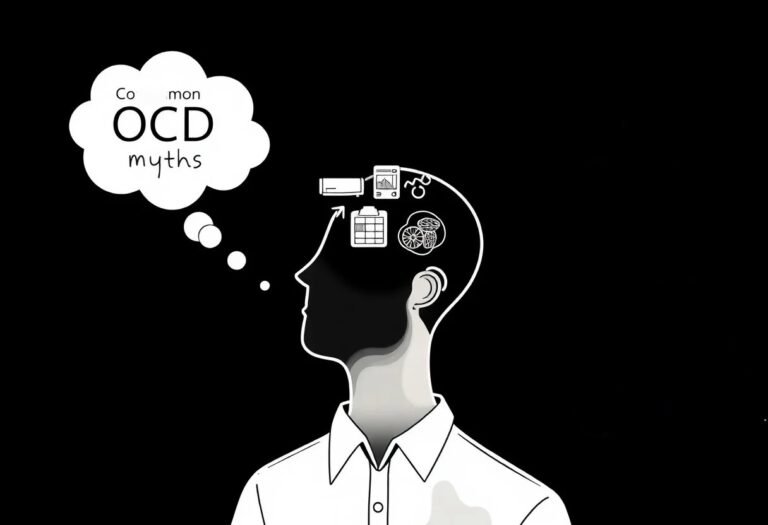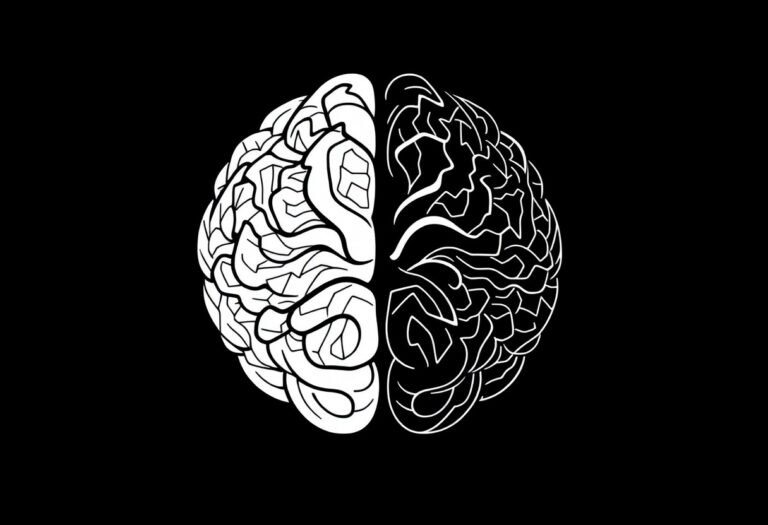Medication for Mental Illness – Myths and Facts
Over time, various myths surrounding medication for mental illness have created confusion and stigma. You might believe that these medications are just a quick fix or that they always lead to dependency, but in reality, they play a vital role in managing symptoms and improving your quality of life. This blog post will help you separate fact from fiction, providing evidence-based insights into how these treatments work and their potential benefits, while also discussing the importance of consulting with a healthcare professional for personalized care.
Key Takeaways:
- Medications for mental illness are effective tools that can help manage symptoms; they are not a one-size-fits-all solution.
- Myths about medication, such as the belief that they will change one’s personality, can lead to stigma and hesitancy in seeking treatment.
- Effective mental health treatment often includes a combination of medication, therapy, and lifestyle modifications.
- Patients should work closely with healthcare providers to find the right medication and dosage, as adjustments may be necessary over time.
- Ongoing education about mental illness and treatment options can empower individuals to advocate for their mental health needs.
Common Myths About Mental Illness Medication
The conversation surrounding mental illness and its treatment options often leads to several misconceptions about medication. Many people harbor myths that can hinder their understanding and acceptance of treatment. By debunking these myths, you can pave the way for informed discussions and decisions that prioritize mental health and well-being.
Myth 1: Medications are a quick fix
Medication for mental illness is often seen as a quick solution, but this is misleading. Effective treatment requires time and a carefully tailored approach, including the possibility of therapy and lifestyle changes. Finding the right medication and dosage can take several weeks or even months, making patience and ongoing communication with your healthcare provider vital components of recovery.
Myth 2: Only weak people need medication
An unfortunate myth about mental health treatment is that seeking medication reflects weakness. This perception can discourage you from pursuing the help you need. It’s vital to understand that mental illness is a real health condition, much like diabetes or hypertension. Seeking medication is a sign of strength, as it indicates your commitment to improving your health. The more you educate yourself about mental illness, the better you can address misconceptions and advocate for your needs.
The stigma surrounding medication can perpetuate the harmful idea that only weak individuals need help, but in reality, everyone faces challenges. Addressing mental health requires a comprehensive approach, and recognizing medication as a beneficial tool can lead to improved quality of life. By shifting your perspective, you create a healthier dialogue around mental illness, fostering an environment where seeking treatment is viewed as an act of courage rather than weakness.
The Science Behind Mental Health Medications
While the stigma surrounding mental health persists, the science behind mental health medications has advanced significantly, providing effective treatment options. Understanding how these medications function is vital for anyone seeking to improve their mental health. Each medication is designed to target specific neurotransmitters that influence mood, thought processes, and behavior.
How Medications Work
Behind every mental health medication lies a complex interaction with your brain’s chemistry. Medications can balance neurochemical levels, particularly neurotransmitters like serotonin, dopamine, and norepinephrine, which are linked to conditions such as depression and anxiety. By normalizing these levels, medications can alleviate symptoms and improve your overall mental well-being.
Types of Medications Available
Along with several medications available for mental health treatment, each serves a distinct purpose. Here is a breakdown of the common types:
| Medication Type | Description |
| Antidepressants | Help treat depression by altering neurotransmitter levels. |
| Antipsychotics | Used for conditions like schizophrenia and bipolar disorder. |
| Anti-anxiety Medications | Reduce symptoms of anxiety and panic disorders. |
| Mood Stabilizers | Stabilize mood swings in conditions like bipolar disorder. |
| Stimulants | Prescribed primarily for ADHD to enhance focus and attention. |
Another important aspect of understanding mental health medications involves their potential effects and variations. Various medications can work differently for you, depending on your unique body chemistry and mental health needs. Familiarizing yourself with these can assist in recognizing which medications might be more effective.
- Be aware of side effects and interactions.
- Consult with a medical professional for personalized advice.
- Consider non-pharmaceutical options alongside medications.
- Be patient during medication adjustments.
- After finding the right medication, you may experience significant improvements!
| Considerations | Actions |
| Monitor progress | Regularly assess your response to treatment. |
| Stay informed | Keep up with research on mental health medications. |
| Discuss concerns | Always communicate any side effects or worries with your doctor. |
| Be proactive | Engage in complementary therapies such as therapy or mindfulness. |
| Seek support | Use support groups or connections with others facing similar challenges. |

The Role of Medication in Treatment
All mental health conditions can significantly impact your daily life, and medication can play an imperative role in your treatment journey. While not a standalone solution, medications can help stabilize your mood, alleviate symptoms, and ultimately improve your quality of life. They are often used in conjunction with therapy and other wellness strategies to ensure a comprehensive approach to mental health treatment.
Medication as Part of a Comprehensive Treatment Plan
Any effective approach to mental illness includes medication as one component of a broader, holistic treatment plan. This plan may involve talk therapy, lifestyle changes, and support from loved ones. By addressing multiple facets of your mental health, you can achieve more lasting results and enhance your overall well-being.
Patient Experiences and Outcomes
On your journey with mental illness, the experience of medication varies greatly from person to person. While some individuals report a significant reduction in symptoms and an improved quality of life, others may face side effects or feel disillusioned with their treatment. It’s vital to maintain open communication with your healthcare provider and be involved in decisions regarding your medication, ensuring you feel comfortable and supported throughout the process.
experiences with medication can differ significantly among individuals living with mental illness. While some may experience rapid improvements in their symptoms, leading to enhanced daily functioning, others might find that despite efforts, the medications cause unpleasant side effects or may not provide the expected relief. It’s important that you work closely with your healthcare provider to tailor your treatment, weighing the benefits against the risks. Your feedback will be instrumental in adjusting doses or exploring alternative options, resulting in a treatment plan that better suits your needs and preferences.
Side Effects and Risks
For many, understanding the potential side effects and risks of medication for mental illness is vital. While these medications can significantly improve your mental well-being, they may also come with unwanted consequences that can affect your daily life. It’s important to discuss any concerns with your healthcare provider to ensure you find the balance between benefits and risks.
Common Side Effects
On your journey with mental health medications, you may encounter a variety of common side effects. These can include weight gain, drowsiness, dry mouth, and gastrointestinal issues. Being aware of these side effects allows you to recognize any changes in your body and communicate effectively with your healthcare provider.
Managing Side Effects
About managing side effects, it’s necessary to take an active role in your treatment plan. Open communication with your healthcare provider can help you tailor your medication for your specific needs while minimizing discomfort. Adjustments to dosage, timing, or even exploring alternative medications can lead to a more manageable experience.
With the right strategies in place, you can effectively manage side effects from your mental health medication. Techniques such as maintaining a healthy diet, staying hydrated, and incorporating regular physical activity can enhance your overall well-being. Consistently discussing any troubling symptoms with your healthcare provider will enable you to adjust your treatment to ensure you are achieving optimal results, emphasizing your mental health’s importance without compromising your quality of life.
Alternatives to Medication
Keep in mind that medication is not the only option for managing mental illness. Many people find success through various alternatives, allowing them to mitigate symptoms without relying solely on pharmaceuticals. Exploring these options can lead to a more holistic approach to your mental health, enhancing your overall well-being and quality of life.
Therapy and Counseling
Between therapy and counseling, you have access to valuable resources that can provide support and strategies for managing your mental health. These professional relationships allow you to explore your thoughts and feelings in a safe space and work towards achievable goals with an experienced guide.
Lifestyle Changes
Beside traditional therapy, making lifestyle changes can significantly improve your mental health. Simple adjustments, such as incorporating regular exercise, maintaining a balanced diet, and practicing mindfulness, can help you manage symptoms and lead to a more fulfilling life.
But adopting lifestyle changes is not a quick fix; it requires dedication and consistency. Engaging in regular physical activity not only boosts your mood but also enhances your overall mental clarity. Maintaining a healthy diet rich in nutrients can positively affect brain function. Additionally, practices such as meditation and deep-breathing exercises can provide you with the tools to manage stress and anxiety. By focusing on these positive lifestyle changes, you can empower yourself to take charge of your mental health journey.
FAQs About Mental Illness Medication
Your understanding of mental illness medication is key to improving your mental health journey. It is not uncommon to have many questions regarding the types of medications available, their effects, and how they can be integrated into your treatment plan. This section will address frequently asked questions, helping to demystify medication and provide clarity on this important aspect of managing mental illness.
Who should seek medication?
Individuals who experience consistent symptoms of mental illness, such as severe anxiety, depression, bipolar disorder, or other mood disorders, should consider seeking medication. Consulting a healthcare professional can help you assess your situation and determine if medication is an appropriate option for you.
How to discuss medication with your doctor
You should be open and honest with your doctor about your symptoms, concerns, and treatment goals. This will help establish a productive dialogue and create an effective medication plan tailored to your needs.
About initiating a conversation with your doctor regarding medication, you should prepare by noting down your symptoms, their frequency, and any triggers you have identified. Express your feelings and experiences clearly, and ask whether medication may be beneficial for your situation. It is important to address any uncertainties or previous experiences with medications, as well as inquire about possible side effects and expected outcomes. The more information you provide, the better your healthcare provider can assist you.
To wrap up
On the whole, understanding the myths and facts about medication for mental illness empowers you to make informed decisions about your mental health treatment. By dispelling misconceptions and gaining accurate knowledge, you can better navigate your options and collaborate effectively with healthcare providers. It’s necessary to recognize that medication can be a valuable part of a comprehensive treatment plan, tailored to your unique needs. Embrace this knowledge and advocate for your well-being to achieve a healthier, more balanced life.







